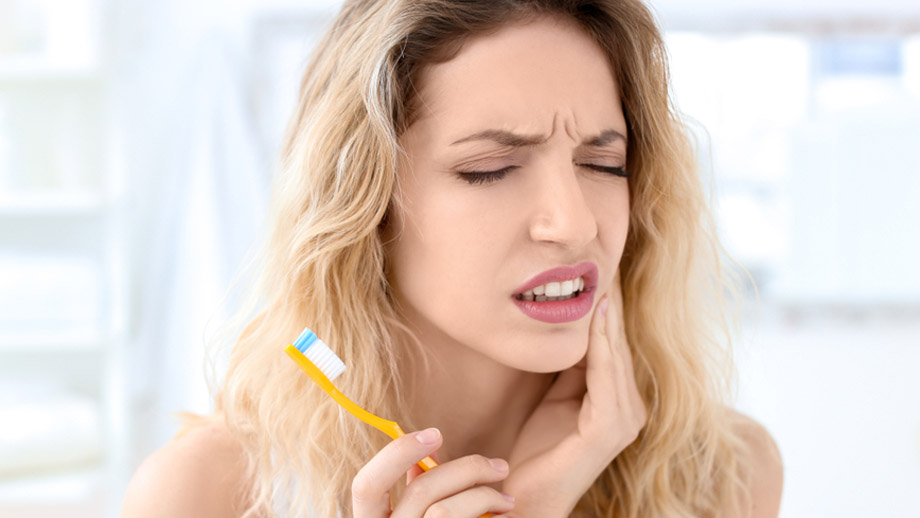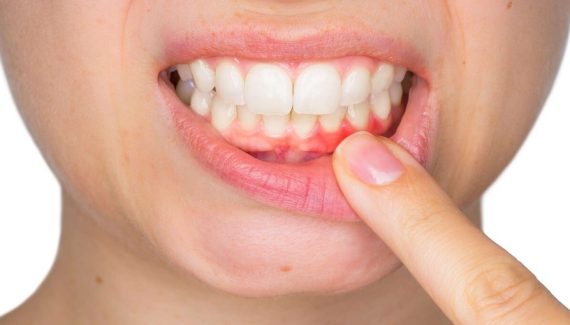Brushing your teeth is important for oral hygiene and can help prevent tooth decay. However, there are some people who experience pain when brushing their teeth. This is because the gum line recedes due to the constant pressure of the brush against the tooth surface. It is irritating when you feel pain and hurt in your gums while brushing your teeth. It is a sign of gum disease. Proper brushing techniques and good dental care can help to avoid this problem.

Image Credits: sensodyne
Contents
How to Brush Your Teeth Without Hurting Your Gum
Brushing your teeth is important for the health of your gums, but it can be painful if you have gum recession. Gum recession is a condition where the gum tissue recedes from the tooth. It can happen when you brush too hard or not at all.
This article will provide you with a few tips on how to brush without hurting your gum.
Brushing incorrectly can lead to pain in the gum. It is important to follow the right technique to avoid pain and hurting your gums when brushing your teeth:
- Use a soft toothbrush with a small head and bristles that are soft and flexible. Brushing too hard can also cause sensitive teeth and inflammation of the gums. Brushing with a soft-bristled brush will allow for a gentler cleaning and protect your gums from pain or irritation.
- Brush in circular motions, starting from the inside of the mouth and then moving outwards towards the cheeks. This helps prevent any build-up that may cling to the inside of your mouth and cause cavities or an unpleasant taste in your mouth.
- Use fluoride toothpaste, preferably one with fluoride in it. Fluoride toothpaste is one of the best ways to help prevent cavities and maintain oral health.
Brushing your teeth does not have to be painful or harsh on your mouth. With these tips, you will be able to brush without any side effects from gum recession. Brushing too hard can also cause sensitive teeth and inflammation of the gums. Brushing with a soft-bristled brush will allow for a gentler cleaning and protect your gums from pain or irritation.
Also Read: How to Reverse Gum Recession Naturally
Possible Causes Why Do Gum Hurts When Brushing
Gum hurt is a common problem that can be caused by many different factors. It can be caused by tooth decay, gum disease, and even brushing too hard. Many people brush their teeth without considering the cause of their gum pain. This is because they are not aware of the various causes that can lead to tooth sensitivity, which can range from a simple brushing technique to an underlying health condition.
It is not normal for the gums to hurt when brushing. The pain could be due to a number of factors.
1. Toothbrush bristles are too hard:
if you are using a toothbrush with hard bristles, this could cause the gums to hurt when brushing. It is recommended that you use soft bristles instead, as they are gentler on the gums and teeth.
2. Gums are sensitive:
if your gums have always been sensitive, then they may get irritated or inflamed when you brush them with your toothbrush. You should try using a toothpaste that has a lower abrasion level and is appropriate for sensitive teeth or gum problems.
3. Gum disease:
This can cause pain when brushing, so it is important to see your dentist if you notice any symptoms of gum disease such as bleeding while brushing or soreness after brushing for 10 minutes or more.
4. Tooth decay:
decay in teeth is a painful condition that can occur when brushing. You should see a dentist if you are experiencing any pain while brushing or if you notice bleeding while brushing.
5. Plaque build-up:
It is a common cause of tooth decay and gum disease. Plaque can be caused by eating too many sugary or starchy foods that enter the mouth or by not brushing or flossing enough. If plaque is not removed, it will harden into tartar. Tartar can cause tooth decay and gum disease as well as irritation or infection of the gums and tissues.
6. Brushing Incorrectly:
Incorrect brushing can lead to a buildup of plaque on the teeth and gums. This plaque will lead to bad breath and tooth decay in the long run. It also causes gum pain because it irritates the gums and makes them swell up. Brushing should be done with a gentle circular motion in short, up-and-down strokes, using a toothbrush with soft bristles.
7. Canker Sores:
Canker sores are small ulcers that develop on the inside of the mouth. These sores are caused by a bacterial infection and can cause pain in the mouth and gum.
8. Dental Instruments:
Braces, dentures, and other dental devices can cause damage to the gums and inner cheek if not fitted properly. This can result in chronic pain, ulcers, bleeding, and in extreme cases, tooth loss.
9. Tobacco:
Tobacco is not just bad for your lungs; it can also cause gum pain. Chewing tobacco can lead to many health problems, including gum pain. Tobacco chewers are more likely to develop periodontal disease than people who don’t chew, according to a study in the journal General Dentistry. Tobacco causes gum pain because it contains nicotine which stimulates the production of saliva, which weakens the gums and causes them to bleed or swell up.
Also Read: Foods That Improve Gum Health and Fight Receding Gums
Conclusion
It is not uncommon for people to experience pain and hurt in their gums when they brush. There are a variety of reasons why this can happen, and it is important to find the cause so that you can get the appropriate treatment. Brushing teeth too hard can lead to gum irritation and hurt.
If you are feeling discomfort after brushing your teeth, try switching toothbrushes or using a softer toothbrush. Gums might also hurt if they are sensitive or have receding gums. The answer to this question is not that simple. There are many causes of gum pain and it’s always a good idea to consult with a dentist
You May Like to Read:


